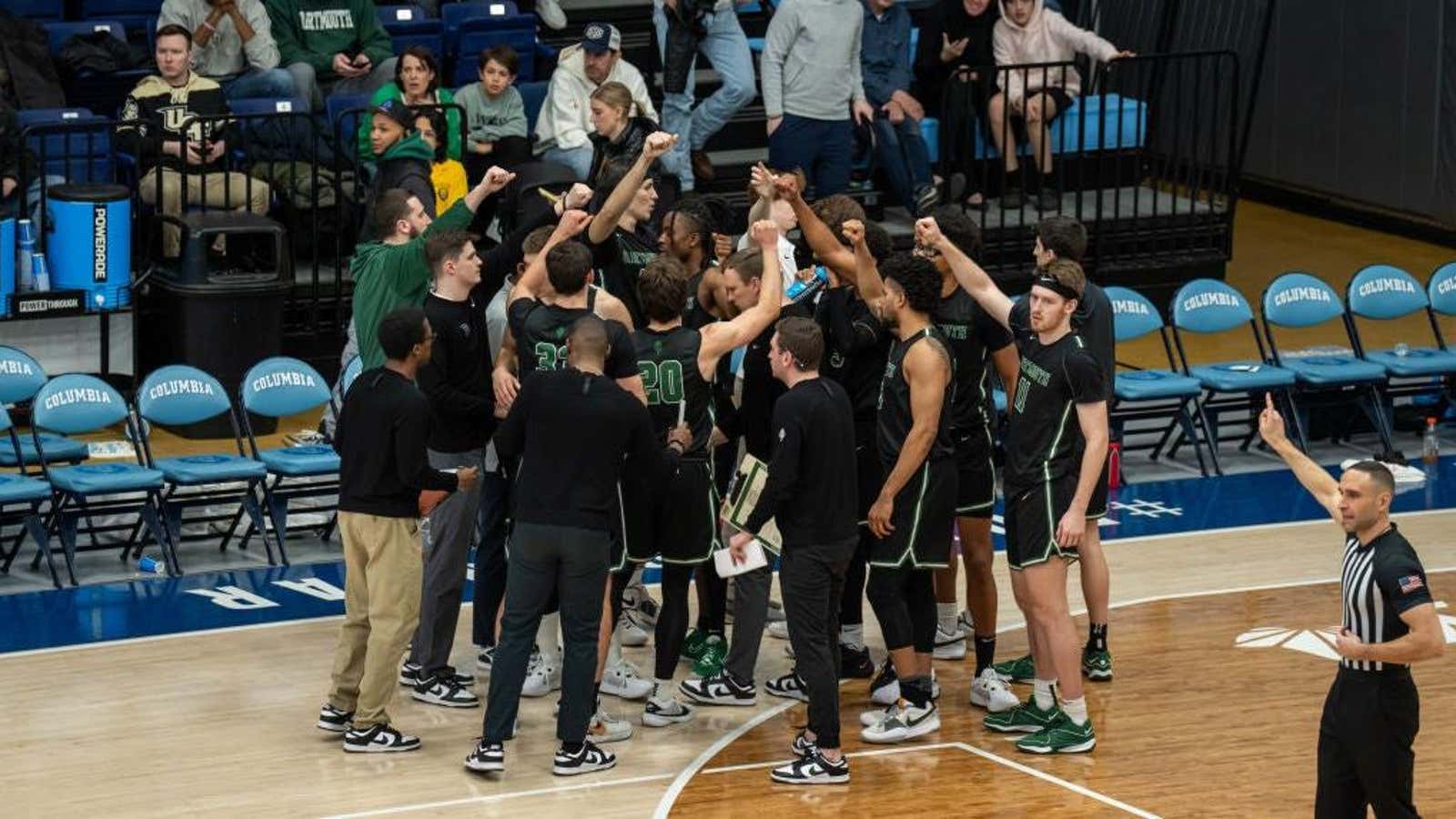Dartmouth men’s basketball players voted to unionize Tuesday — a move that has major implications for both the National Collegiate Athletics Association (NCAA) and the business of college sports.
The National Labor Relations Board (NLRB) ruled last month that Dartmouth men’s basketball players are employees, which paved the way for Tuesday’s election. Dartmouth asked the NLRB to reconsider its decision and reopen the case, but was denied. The school also filed a petition to suspend the election, also unsuccessfully.
The Dartmouth athletes voted 13-2 in favor of joining the SEIU Local 560. The vote to join the Service Employees International Union make it the first-ever American college sports team to unionize. The election outcome could also fundamentally alter NCAA rules, which currently stipulate that college athletes cannot collect a salary from the schools they play — and generate significant revenue — for.
“It could be an existential crisis for the NCAA,” Rebecca Kolins Givan, a labor professor at Rutgers University, told Quartz. The NCAA will have to flip its own rules to comply with the law, allowing member universities to pay athletes deemed private employees. Those private universities, she added, would then be able to set compensation standards. The NCAA and Dartmouth did not respond to Quartz’s requests for comment.
Right now, college athletes make money from “collectives,” or booster groups funded by alumni and fans that pay them to post on social media, among other tasks. “They say you’re not getting paid for the work that you’re doing as an athlete, you’re getting paid for the use of your image,” Given said.
Since the NCAA’s founding in 1906, the association has argued that college athletes shouldn’t be paid because they are amateurs. But as public opinion has shifted to support these players getting direct compensation, so too has the NCAA. The organization proposed a change to its own rules in December 2023 that would allow colleges and universities to pay members of their sports teams.
A future in which private universities pay athletes would not be a financial challenge for colleges, Given said. “The threat is if there is an understanding that these athletes are workers and they’re entitled to negotiate various job protections.” That includes the hours they work, the school’s restrictions over the classes they take and the majors they choose, among other forms control the college exercises over players. “It means that there will be a lot of constraints on a college’s ability to exploit them,” Given added.
Could the Dartmouth basketball players spur a larger unionization movement? It’s possible, Given says. It’s likely that athletes at other universities will also vote to unionize — but the legality of those union drives could get tied up in the courts. “Dartmouth has already indicated that they intend to appeal, and it may end up at the Supreme Court,” she added.
Her inklings are shared by other experts and institutions. Risa Lieberwitz, a labor expert who teaches at Cornell University, said the decision has the “potential to have a very great impact and very far-reaching implications.”
“The Dartmouth men’s basketball team’s historic vote to unionize today sounds a death knell for the NCAA’s long-standing model of athlete amateurism, which is already on its last legs,” said a statement from faculty experts at the University of Michigan Tuesday.
Quotable: a ‘significant step’
“This is a significant step forward for college athletes, and we are excited to see how this decision will impact college sports nationwide. We believe that other athletes will recognize the opportunities this ruling presents and will be inspired to follow suit...We look forward to working with our fellow Ivy League athletes to bring positive change to the landscape of college sports and the Ivy League.” —Dartmouth basketball players Cade Haskins and Romeo Myrthil in a statement following the February NLRB ruling.
A larger unionization movement in college sports? Probably.
A move by college athletes at private schools to unionize would fit into a larger unionization picture. Unionization among students employed at their schools (at both the graduate and undergraduate levels) has gained steady momentum since 2022, and union activity in the U.S. overall more than doubled last year.
While athletes at public universities aren’t definitively covered by the NLRB, that’s being debated in an ongoing case involving University of Southern California (USC) football and basketball players. USC is a private school, but because the NCAA and Pac-12 are named as defendants, the ruling would apply to both public and private schools that are members of the leagues.
Editor’s note: This story has been updated to reflect the outcome of the Dartmouth men’s basketball team’s union election.
